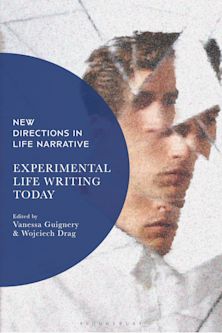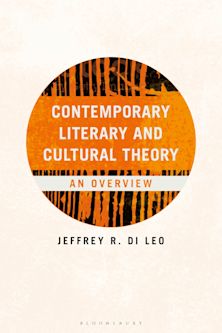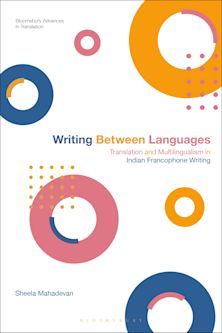Ethics of Witness in Global Testimonial Narratives
Responding to the Pain of Others
Ethics of Witness in Global Testimonial Narratives
Responding to the Pain of Others
This product is usually dispatched within 2-4 weeks
- Delivery and returns info
-
Flat rate of $10.00 for shipping anywhere in Australia
Description
Inspired by Susan Sontag’s examination of the impact of “photography of conscience” in Regarding the Pain of Others, Kimberly A. Nance’s Responding to the Pain of Others: Ethics of Witness in Global Testimonial Narratives takes as its point of departure Sontag’s speculation that in combatting human rights abuse, “a narrative seems likely to be more effective than an image.” Building on her own earlier research on Aristotelian rhetorical theory and testimony, along with other interdisciplinary approaches, Nance analyzes the socio-literary narratives of Elvia Alvarado, Medea Benjamin, Peter Dickinson, Benjamin Alire Sáenz, Clea Koff, Delia Jarrett-Macauley, Valentino Achak Deng, Dave Eggers, Uwem Akpan, and Alicia Partnoy. Each of them, she finds, confronts a human rights discourse in which words—and witnesses—have become disconnected from actions. Recognizing that the genre’s own conventions have become an obstacle to its projects, these testimonialists draw on humor, irony, satire, parody, and innovative literary techniques, alongside strategies rooted in real-life organizing, in an effort to reactivate the discourse of human rights. They seek to persuade readers to exchange a solidarity of sentiment, a state Michael Vander Weele calls “an aesthetics in which the engine revs but the clutch is never engaged,” for actual social action.
Table of Contents
Chapter 1: Better Off Going Out on the Town? Addressing the Witness in Elvia Alvarado’s Don’t Be Afraid, Gringo
Chapter 2: Choose Your Own Testimonial Adventure? Witnessing Alternative Futures in Peter Dickinson’s AK
Chapter 3: Border Testimonies, Restricted Crossings: Questioning the Act of Witness in Benjamin Alire Sáenz’s “Exile: El Paso, Texas” and “Alligator Park”
Chapter 4: Hundreds of Bodies on Two Continents, Telling a Single Story: Witnessing the Testimonial Uncanny in Clea Koff’s The Bone Woman: A Forensic Anthropologist’s Search for Truth in the Mass Graves of Rwanda, Bosnia, Croatia, and Kosovo
Chapter 5: Use Beginning, Middle, and End: Witness and the Work of Reintegration in Delia Jarrett-Macauley’s Moses, Citizen & Me
Chapter 6: Survivors Tell the Stories that the Sympathizers Want: Countering the Comfort of Lost Boy Narratives in What Is the What: The Autobiography of Valentino Achak Deng
Chapter 7: You’ve Got to Be Carefully Taught: Ethics Lessons for Beginners in Uwem Akpan’s “What Language Is That?”
Chapter 8: My Life Is Based on a Real Story: Recursive Witness in Alicia Partnoy’s “Rosa, I Disowned You” and “Disclaimer Intraducible: My Life / Is Based / on a Real Story”
Conclusion: Deliberative Testimonio and the Reactivation of Human Rights Discourse
Product details
| Published | 09 Dec 2019 |
|---|---|
| Format | Hardback |
| Edition | 1st |
| Extent | 158 |
| ISBN | 9781498598880 |
| Imprint | Lexington Books |
| Dimensions | 234 x 162 mm |
| Series | Reading Trauma and Memory |
| Publisher | Bloomsbury Publishing |
Reviews

ONLINE RESOURCES
Bloomsbury Collections
This book is available on Bloomsbury Collections where your library has access.



































